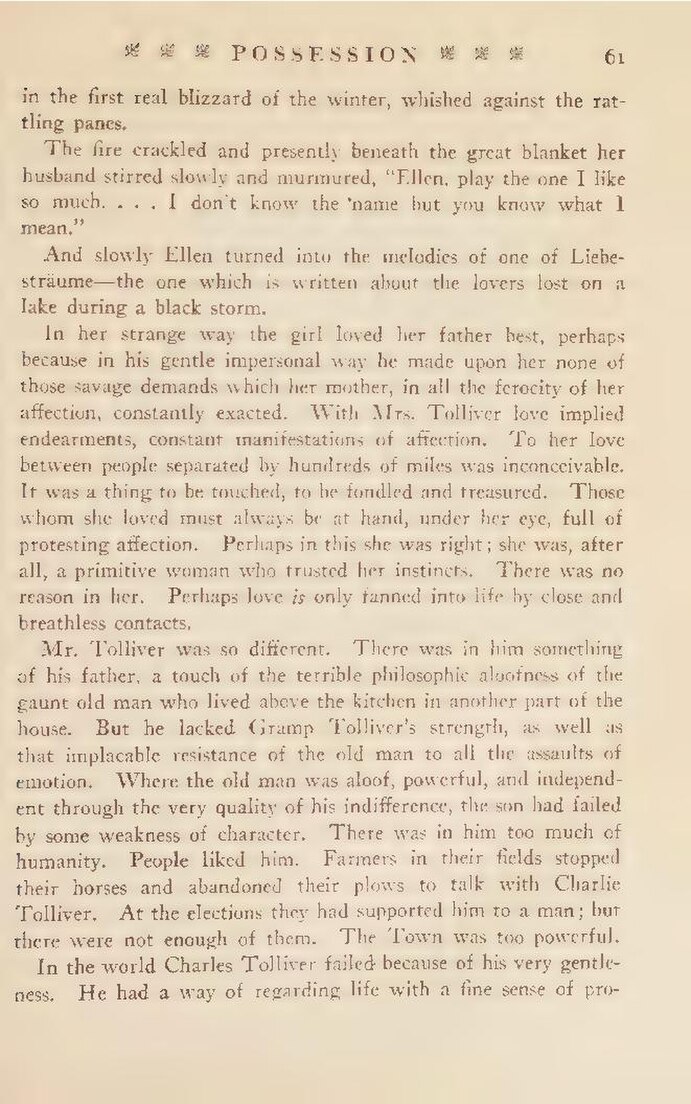in the first real blizzard of the winter, whished against the rattling panes.
The fire crackled and presently beneath the great blanket her husband stirred slowly and murmured, "Ellen, play the one I like so much. . . . I don't know the name but you know what I mean."
And slowly Ellen turned into the melodies of one of Liebesträume—the one which is written about the lovers lost on a lake during a black storm.
In her strange way the girl loved her father best, perhaps because in his gentle impersonal way he made upon her none of those savage demands which her mother, in all the ferocity of her affection, constantly exacted. With Mrs. Tolliver love implied endearments, constant manifestations of affection. To her love between people separated by hundreds of miles was inconceivable. It was a thing to be touched, to be fondled and treasured. Those whom she loved must always be at hand, under her eye, full of protesting affection. Perhaps in this she was right; she was, after all, a primitive woman who trusted her instincts. There was no reason in her. Perhaps love is only fanned into life by close and breathless contacts.
Mr. Tolliver was so different. There was in him something of his father, a touch of the terrible philosophic aloofness of the gaunt old man who lived above the kitchen in another part of the house. But he lacked Gramp Tolliver's strength, as well as that implacable resistance of the old man to all the assaults of emotion. Where the old man was aloof, powerful, and independent through the very quality of his indifference, the son had failed by some weakness of character. There was in him too much of humanity. People liked him. Farmers in their fields stopped their horses and abandoned their plows to talk with Charlie Tolliver. At the elections they had supported him to a man; but there were not enough of them. The Town was too powerful.
In the world Charles Tolliver failed because of his very gentleness. He had a way of regarding life with a fine sense of pro-
